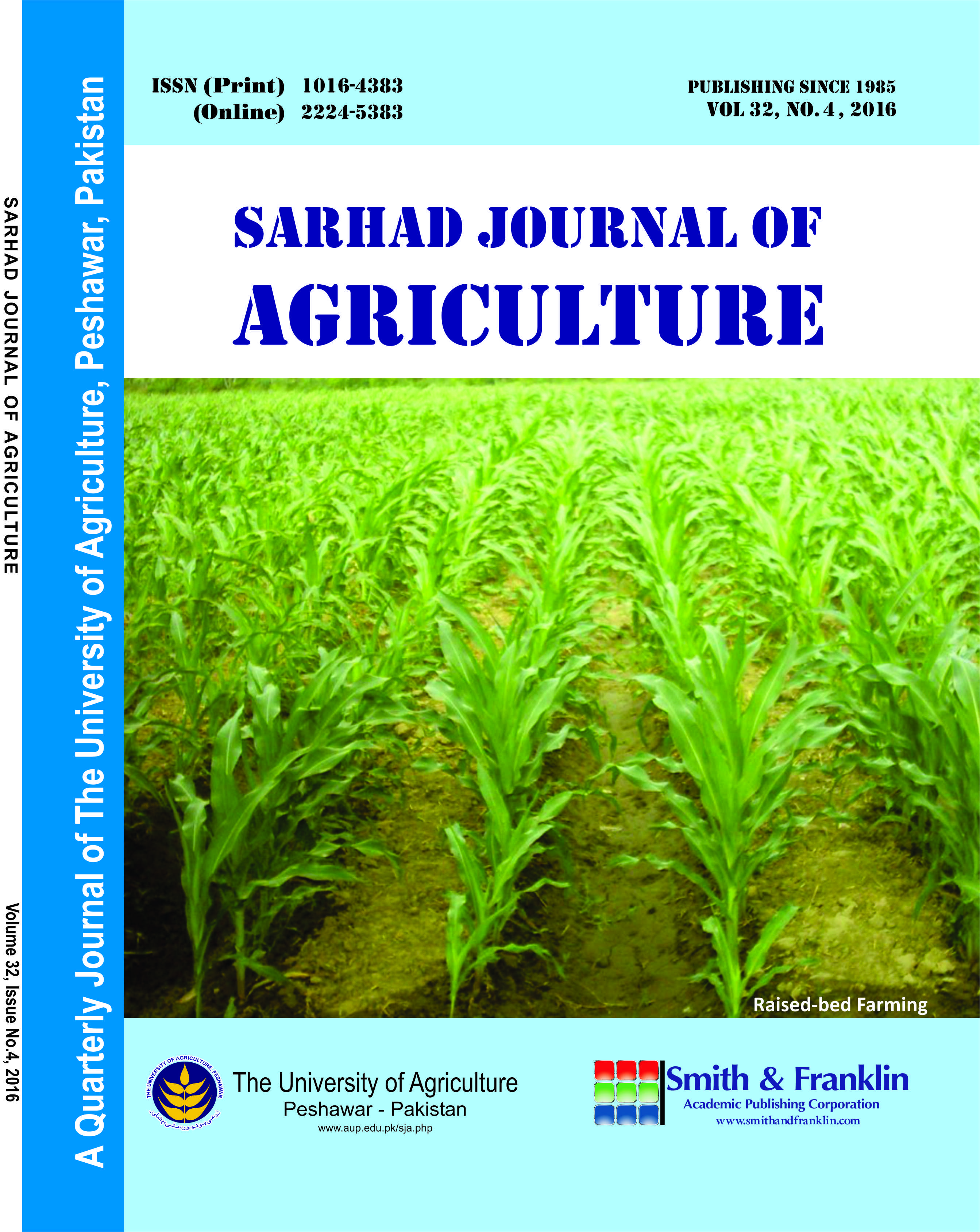Foliar Calcium Application Ameliorates Salinity-Induced Changes of Tomato Crop Grown in Saline Conditions
Foliar Calcium Application Ameliorates Salinity-Induced Changes of Tomato Crop Grown in Saline Conditions
Abdur Rab1*, Muhammad Sajid1, Naveed Ahmad1, Khalid Nawab2, Syed Ghias Ali3
ABSTRACT
The influence of foliar calcium application on tomato crop grown in saline conditions was investigated by exposing tomato plants to 0, 75 and 150 mM salinity; and foliar application of 0.0, 0.25, 0.50, 0.75, 1.0, 1.25% calcium solutions. Salinity stress increased leaf Na+ and Na+/ K+, fruit firmness and blossom end rot (BER) incidence but significantly decreased the leaf K+ and Ca content of the fruit and yield. The foliar calcium application decreased the Na+ accumulation, Na+/ K+ ratio and BER incidence as well as increased the leaf K+ and Ca content of tomato fruit, yield and fruit firmness. The interaction of salinity and calcium significantly affected the yield and BER incidence of tomato fruit. Whereas, the yield of tomato decreased with increasing salinity levels, the decrease in yield was comparatively less with foliar calcium application. By contrast, salinity increased the BER incidence but the salinity-induced increase in BER incidence was lower with calcium application as compared to control plants.
To share on other social networks, click on any share button. What are these?








